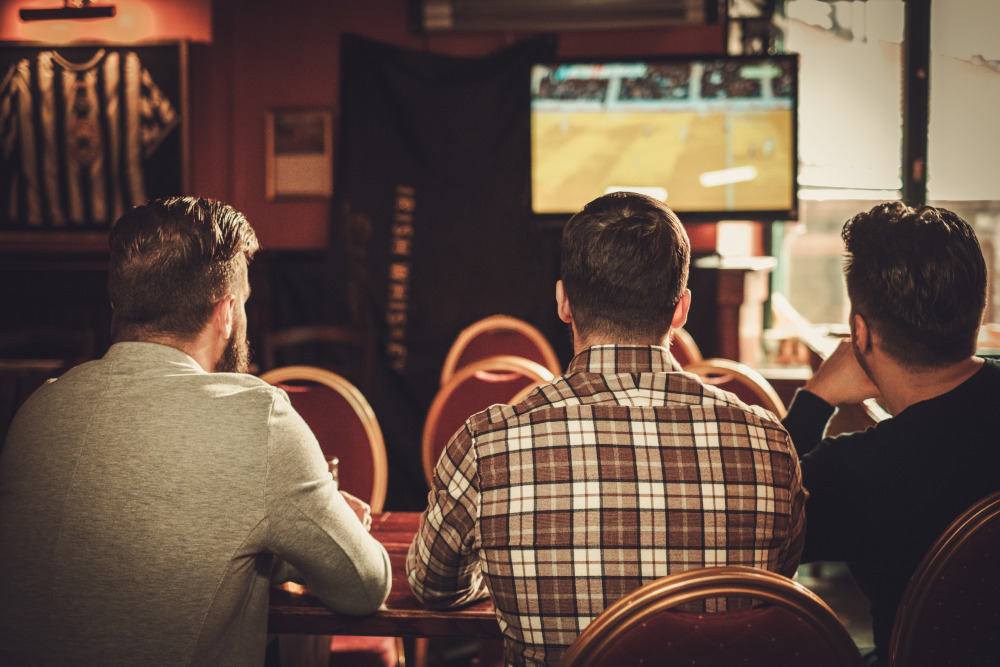Sports betting has become a significant aspect of South Africa’s gambling landscape, with the industry experiencing substantial growth in recent years. In the 2023/24 financial year, South Africans placed an astonishing R1.1 trillion worth of legal bets, marking a 40% increase from the previous year. Notably, sports betting accounted for over R700 billion of this total, underscoring its dominance in the market. This surge is partly attributed to the country’s high smartphone penetration rate of over 70%, which has made online betting more accessible to a broader audience.
The allure of sports betting can be understood through various psychological factors that influence human behavior. The anticipation of potential wins triggers the release of dopamine, a neurotransmitter associated with pleasure and reward, making the activity inherently enjoyable. Additionally, cognitive biases such as the illusion of control lead individuals to believe they can influence random events, further enhancing the appeal of betting. However, these psychological drivers can also contribute to problematic gambling behaviors, as bettors may overemphasize their ability to predict outcomes, leading to increased risk-taking.
In Cape Town, the impact of sports betting is evident, reflecting national trends. The city’s vibrant sports culture and widespread internet access have facilitated the growth of online betting platforms, attracting a diverse demographic of bettors. While many engage in sports betting as a form of entertainment, it’s crucial to recognize the potential for addiction. Studies have shown that gambling problems related to sports betting are associated with factors such as impulsivity and sensation-seeking behaviors. To mitigate these risks, bettors are advised to set limits, engage in self-reflection, and seek support if gambling begins to negatively impact their lives.
The Science Behind Why People Bet on Sports
The Dopamine Effect: How Winning (or the Chance of Winning) Triggers Pleasure
Engaging in sports betting stimulates the brain’s reward system by releasing dopamine, a neurotransmitter associated with pleasure and motivation. This release occurs not only during wins but also in anticipation of potential rewards, reinforcing the behavior and contributing to its addictive nature.
The Illusion of Control: Why Bettors Believe They Can Influence Outcomes
Many bettors experience an illusion of control, believing their actions or knowledge can influence inherently random outcomes. This cognitive bias leads individuals to overestimate their ability to predict results, fostering increased risk-taking and sustained gambling behavior.
The Role of Cognitive Biases, Such as Overconfidence and Hindsight Bias
Cognitive biases like overconfidence and hindsight bias significantly impact betting decisions. Overconfidence leads bettors to overestimate their predictive abilities, while hindsight bias causes them to perceive past events as more predictable than they were, reinforcing misguided beliefs and potentially escalating gambling activities.
The Addictive Nature of Sports Betting
How Intermittent Rewards Make Betting Highly Engaging
Sports betting operates on a system of intermittent reinforcement, where rewards are unpredictable and sporadic. This pattern of occasional wins amidst losses stimulates the brain’s reward pathways, releasing dopamine and reinforcing the gambling behavior. The unpredictability of these rewards makes the activity highly engaging and can lead to persistent betting, as individuals continue to seek the pleasurable sensations associated with winning.
The Gambler’s Fallacy: Why People Keep Chasing Losses
The gambler’s fallacy is a cognitive bias where individuals believe that past random events influence future outcomes. For instance, after a series of losses, a bettor might think a win is “due,” leading them to continue gambling in an attempt to recoup losses. This erroneous belief perpetuates a cycle of chasing losses, often resulting in further financial decline and reinforcing addictive behaviors.
The Impact of Near-Misses and Why They Fuel Further Betting
Near-misses occur when an outcome is close to a win but ultimately results in a loss, such as a slot machine displaying two matching symbols out of three. These near-miss experiences activate reward-related regions in the brain similarly to actual wins, creating a sense of almost succeeding. This sensation can motivate individuals to continue betting, as they perceive themselves to be on the verge of winning, thereby fueling further gambling behavior.
Understanding these psychological mechanisms—intermittent rewards, the gambler’s fallacy, and the impact of near-misses—highlights the complex nature of sports betting addiction. Recognizing these factors is crucial for developing effective prevention and intervention strategies to promote responsible gambling practices.
Emotional Triggers and Their Influence on Betting Behavior
The Impact of Winning and Losing Streaks on Decision-Making
Experiencing consecutive wins or losses can significantly influence a bettor’s subsequent choices. Winning streaks often lead to overconfidence, prompting individuals to place larger or riskier bets under the assumption that their success will continue. Conversely, losing streaks can result in frustration and desperation, leading bettors to chase losses by making impulsive wagers in an attempt to recover financially. Both scenarios can impair judgment and escalate risky betting behaviors.
How Emotions Like Frustration, Excitement, and Desperation Affect Wagers
Emotions play a pivotal role in betting decisions. Frustration from losses may drive individuals to make hasty bets without proper analysis, while excitement from potential wins can cloud judgment, leading to overestimation of favorable outcomes. Desperation, particularly after significant losses, can push bettors to stake more than they can afford, hoping for a turnaround. These emotional responses often override rational decision-making, increasing the likelihood of problematic gambling behaviors.
Why Sports Fans Are More Likely to Bet on Their Favorite Teams, Even When It’s Irrational
Sports fans often exhibit a bias towards their preferred teams, leading them to place bets based on loyalty rather than objective analysis. This emotional attachment can result in overestimating their team’s chances of success, causing them to ignore unfavorable statistics or odds. Such irrational betting behavior is driven by personal identification with the team and the desire to support them, even at the expense of potential financial loss.
Understanding these emotional triggers is crucial for bettors aiming to maintain control and make informed decisions, thereby promoting responsible gambling practices.
The Role of Social Influence in Betting
How Peer Pressure and Group Betting Influence Decisions
Peer pressure significantly impacts individual gambling behaviors. Within social groups, wagering can become normalized, leading members to participate in betting activities to gain acceptance or avoid exclusion. This dynamic fosters environments where gambling is seen as a typical social activity, potentially increasing the likelihood of individuals developing gambling habits.
The Rise of Social Media and Its Effect on Betting Trends
Social media platforms have transformed how betting is perceived and engaged with, especially among younger audiences. Influencers and content creators often share gambling-related content, making betting appear more mainstream and appealing. This exposure can lead to increased gambling participation, as individuals emulate behaviors showcased online.
Celebrity Endorsements and Influencer-Driven Betting Culture
Celebrity endorsements play a pivotal role in shaping gambling behaviors. Promotions by well-known figures can enhance a betting platform’s credibility and attract fans to participate. This strategy effectively taps into the trust and admiration that followers have for celebrities, leading to increased engagement with gambling activities.
Understanding these social influences is crucial for developing responsible gambling practices and mitigating potential risks associated with peer pressure and media exposure.
Staying in Control: How to Bet Responsibly
Recognizing Unhealthy Betting Behaviors and Warning Signs of Addiction
Identifying problematic gambling behavior is crucial for maintaining control.
- Spending more money or time on gambling than intended.
- Repeated unsuccessful attempts to cut back or stop gambling.
- Neglecting personal or professional responsibilities due to gambling.
- Lying to conceal gambling activities.
- Relying on others to relieve financial problems caused by gambling.
Recognizing these signs early can prevent escalation.
Setting Limits and Creating Betting Budgets
Establishing clear boundaries is essential for responsible gambling. Strategies include:
- Time Limits: Allocating specific periods for gambling to prevent excessive play.
- Monetary Budgets: Determining an affordable amount to wager and adhering strictly to this limit.
- Betting Plans: Deciding on bet sizes and frequency in advance to maintain discipline.
These measures help keep gambling within manageable and enjoyable parameters.
The Benefits of Self-Exclusion and Responsible Gambling Tools
Utilizing available resources can aid in maintaining control:
- Self-Exclusion Programs: Voluntarily restricting access to gambling venues or online platforms for a defined period.
- Deposit Limits: Setting caps on the amount of money that can be deposited over a certain timeframe.
- Reality Checks: Receiving regular reminders about the duration and amount spent during gambling sessions.
Implementing these tools supports responsible gambling habits and minimizes potential harm.
By recognizing warning signs, setting strict limits, and utilizing supportive tools, individuals can enjoy sports betting as a form of entertainment while mitigating risks associated with gambling addiction.
The Future of Sports Betting Psychology
How AI and Personalized Algorithms Are Shaping Betting Experiences
Artificial intelligence (AI) is transforming sports betting by analyzing user behavior to offer tailored experiences. AI systems assess individual betting patterns and preferences, enabling platforms to provide customized recommendations that enhance user engagement. For instance, AI can suggest wagers aligned with a bettor’s history, making the experience more personalized. Additionally, AI monitors real-time game developments, adjusting odds dynamically to reflect current events, thereby influencing betting strategies.
The Ethical Debate Around Responsible Gambling vs. Marketing Tactics
The integration of AI in sports betting raises ethical concerns, particularly regarding the balance between personalized marketing and responsible gambling. While tailored promotions can enhance user experience, they may also encourage excessive gambling among vulnerable individuals. Critics argue that AI-driven marketing tactics could exploit bettors’ behaviors, leading to addiction. Conversely, AI has the potential to identify problematic gambling patterns, allowing operators to intervene and promote responsible practices. This duality presents a complex ethical landscape for the industry.
Potential Regulatory Changes to Prevent Problem Gambling
In response to the evolving betting environment, regulators are considering measures to mitigate problem gambling. Some jurisdictions are implementing stricter advertising controls and mandating affordability checks to ensure bettors do not wager beyond their means. For example, proposed U.S. legislation requires operators to verify that a customer’s deposits do not exceed 30% of their monthly income. Additionally, analyses have revealed that many states meet only a fraction of recommended consumer protection standards, highlighting the need for more robust regulations. These initiatives aim to create a safer betting environment amidst technological advancements.
As AI continues to reshape sports betting, understanding its psychological impact becomes crucial. Balancing technological innovation with ethical considerations and regulatory oversight is essential to ensure that the industry evolves responsibly, safeguarding bettors’ well-being while offering engaging experiences.
Understanding the psychological factors that drive sports betting—such as the thrill of risk, cognitive biases, and social influences, empowers individuals to engage in wagering activities with greater awareness. By acknowledging these elements, bettors can approach gambling as a form of entertainment, implementing strategies to maintain control and prevent potential pitfalls. Adopting a balanced and responsible approach ensures that the excitement of sports betting enhances enjoyment without compromising well-being.


